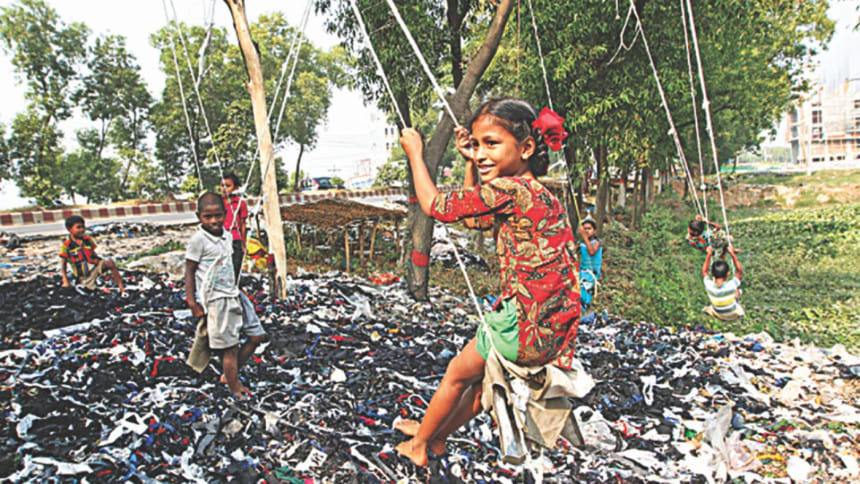It's time to talk about privilege

Yes, the unequi-vocal consensus is that as far as privilege in the societal sphere goes, being white, or part of a majority, firmly positions a person at the top of the ladder. This doesn't mean that non-whites or minorities don't experience privilege, or do not benefit from certain privileges. The social hierarchy in Bangladesh is steeped in varying levels of privilege, and while it may be uncomfortable coming to terms with the idea that one may be benefiting from special advantages that may not be directly earned, it's a necessary exercise, and not just for the sake of keeping ourselves grounded.
The phrase "check your privilege" is thrown around a lot, often derisively, and namely in online social justice circles, but what does it mean in a non-Western context? We all have some sort of privilege over others, while simultaneously facing oppression in other aspects. American feminist and scholar Peggy McIntosh penned a groundbreaking essay in the 1980s on privilege, which has been used as a baseline for the ongoing discussion on the various types of privilege that exist in society, that intersect and affect people from all walks of life.
Take class privilege for example. My upbringing was fairly middle class. I never felt financial insecurity but I knew we weren't wealthy either, and throughout my school years I met students that fell on either side of the wealth spectrum. Regardless of academic ability, students from wealthier backgrounds had the chance to attend better institutions of higher education, whether in Bangladesh or abroad, whereas those from poorer families wouldn't be able to afford those same opportunities. It doesn't make those wealthier students "bad people" for simply taking advantage of the privileges they have, it's merely how society functions.
However, as a woman, I don't have gender privilege. As long as the patriarchy exists, men will be a step above me in society. Another form of privilege that I do have is that physically, I am able-bodied. I can experience more of the world because I happen to be born a certain way. It's not something I, or anyone else, should feel guilty for. It does mean that we have a responsibility to use the platform we are given to make society a better place for those that do not share the same privileges as us.
For the last 10 months, Mahfuz Russel has been working tirelessly within the rural communities in the Chittagong Hill Tracts. Prior to that, he spent around 10 years carrying out humanitarian work, helping children living with AIDS in Tanzania, building shelters in remote villages in Nepal after the 2015 earthquake, as well as running a charity for street children in Dhaka and running free clinics and handicrafts training around the country. He gave up his career as a buyer in order to pursue a more sustainable way of life, helping those in need both home and abroad. Mahfuz's name came to mind when I tried to think of someone I knew who lived a privileged life—he was based in Manchester for a short while—yet walked away from the glitz and glam of a metropolitan lifestyle in order to help those less privileged than him. It's a remarkable story and Mahfuz is just one of many examples of people who see their own privilege and try and use it to help others.
It's also important to remember that privilege does not equate to happiness. It would be incorrect to assume that people in villages are less happy than us simply because they aren't as privileged. Ironically enough, you'll find that in a lot of cases they are happier, because they lead simpler lives with fewer worries. Wealth isn't the only form of privilege either, so it would also be incorrect to assume that all poor people are underprivileged.
I'll admit that I just can't bring myself to give everything up and become a social worker like Mahfuz did, but I do try to help others in my own way. You see, I am privileged enough to have a platform, and as long as I have a platform, I can use it to give a voice to those who are marginalised, and cannot speak up. I use my platform to raise awareness for issues in the hopes that it encourages others to follow suit, because I myself was inspired to do so by other people.
You don't need to be a published writer in order to have a platform. Think about your social media presence, about how many "Facebook friends" you have. Imagine the difference you could make by promoting progressiveness, and highlighting issues that need to be talked about. Not everyone is able-bodied enough to contribute physically; don't let people shame you by labelling you as an "armchair activist". Any step taken towards progressing society is helpful, whether physical or virtual. If you're reading this, I can safely assume you are privileged enough to be educated, and therefore have the capacity to educate others.
Zahrah Haider is a journalism graduate and freelance writer currently living in the UK.





Comments